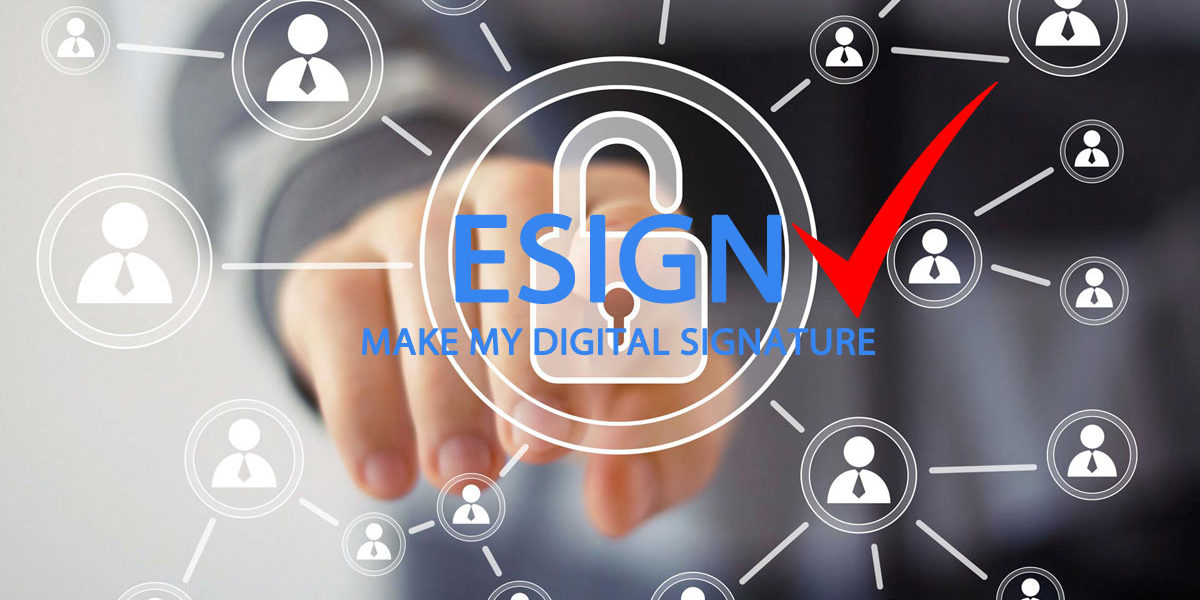In order to create electronic signatures, it is mandatory for the signer to get a Digital Signature Certificate (DSC) issued by a Certifying Authority (CA) licensed by the Controller of Certifying Authorities (CCA) under the Information Technology (IT) Act, 2000. The identity and address of the signer should be verified before a DSC gets issued by a CA. The private key used to create eSign is stored in a hardware cryptographic token that can be used only for one time.
The service of providing paper documentation, verifying an address, and issuing hardware cryptographic tokens is a trouble-some process with billions of people. To offer paperless eSign services, it is necessary for the mass adoption of an electronic form of signature is essential. The online service is simple to use and is accessible to everyone for signing electronic documents digitally.
eSign
eSign is a digital form of signature service that can be incorporated with the service delivery applications with the help of an API to facilitate an eSign user to sign the document electronically. The eSign authentication can be done through e-KYC service and further paperless electronic signature can be enabled.
eSign brings in a lot of characteristics:
1. Authentication via e-KYC
2. Enhances user convenience
3. Easily apply an electronic signature
4. OTP based authentication
5. Handled by licensed CAs
6. Mandatory e-KYC id process
7. Verification of signatures
8. Best Suitable for individual business and Government
9. Cost and time-efficient
10. The immediate destruction of keys after usage
11. Simple Signature verification
12. Privacy concerns addressed
13. Short term valid certificates
14. Assured Integrity with complete audit trail
15. API subscription Model
16. Fast and flexible integration with application
17. No concerns regarding key storage and key protection
Easy and Secure way to sign documents electronically: The digital form of signatures eliminates paper documentation work or a physical cryptographic token. The service providers for this application use e-KYC service for the authentication of eSign and facilitate the documents electronically.
Easy to access and implement: There are configurable authentication options in line with the e-KYC service provided by eSign and an e-KYC ID is generated. The e-KYC ID is used for the verification of the signer’s identity. The authentication for e-KYC can be done using biometric or OTP provided by the e-KYC services. It is a legalized signature service and users can access it easily.
Addresses privacy concerns: In the eSign process, only the thumbprint (hash) of the document is required to be submitted for the signature function rather than providing the whole document as done in paperwork tasks. .
Facilitates legalized signatures: The process of eSign includes signer consent, request to issue eSignature Certificate, eSignature creation and affixing as well as eSignature Certificate acceptance as per the provisions of Information Technology Act. A complete audit trail in electronic form, created to ensure that the transactions are legalized, is also well-maintained.
Secure online service: The eSignature service is based on the e-authentication guidelines. The eSign authentication is carried out using e-KYC services, and on the other hand, the signature on the document is processed on a backend server of the eSign service provider. There are authorized third-party service providers who facilitate eSign services. At present, Certifying Authorities (CA) under the Information Technology Act has the authority to facilitate eSign. To enhance authenticity and security, the private keys for eSign user is built on Hardware Security Module (HSM) and is destroyed straightaway after one-time use.







